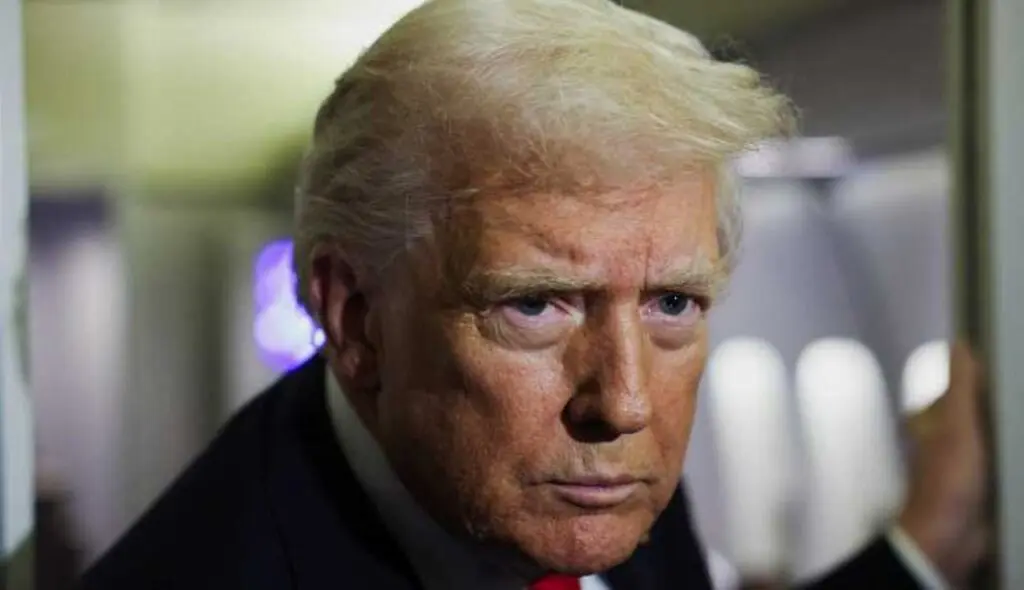Several Republican congressmen have harshly criticized President Donald Trump’s administration for the way it has handled the recent peace plan proposed for Ukraine, which they say favors Russia more, in a radical shift in position of a party that has closely adhered to almost all of Trump’s initiatives, according to a comment by Reuters news agency.
Ukraine supporters express fears that the 28-point framework plan to end the war in Ukraine, made public for the first time last week, will lead to pressure from the Trump administration on Kiev to sign a peace agreement that suits Moscow.
“This so-called ‘peace plan’ has real problems and I am very skeptical that it will lead to peace”, recently stated Senator Roger Wicker, the Republican chairman of the Senate Armed Forces Committee, in a statement.
These fears were amplified when Bloomberg News reported on November 25 that Trump’s special envoy, Steve Witkoff, in a phone call on October 14 with Yuri Ushakov, the international policy adviser to Russian President Vladimir Putin, conveyed that they should work together on a ceasefire plan, advising him on how to present this initiative to Trump.
“For those who oppose the Russian invasion and want Ukraine to remain a sovereign and democratic country, it is clear that Witkoff is completely favoring the Russians. He cannot be trusted to lead these negotiations. Would a paid Russian agent do less than him? He should be fired!”, Republican representative Don Bacon declared on platform X, as quoted by Agerpres.
Even though the Republican Party continues to rally behind Donald Trump, the criticism from these Republican congressmen should not be overlooked, considering the president’s recent failures, including this month’s electoral victories of the Democrats and Congress’s support for the release of the Department of Justice files on convicted sex offender Jeffrey Epstein, something Trump has fought against for months.
Another influential Republican in Congress, Brian Fitzpatrick, called for a change in approach, describing the leaked information about Witkoff’s phone calls as a “major issue”. It is “one of many reasons why these ridiculous spectacles and secret meetings need to stop”, he stated.
Senator Mitch McConnell, the former Republican leader of the Senate, suggested that Trump might need to find new advisers. “Rewarding the Russian slaughter would be disastrous for America’s interests”, he warned in a statement.
Members of Trump’s inner circle have retaliated against the criticism from Republican congressmen. Vice President JD Vance, a former Republican senator who criticized aid to Ukraine, accused McConnell of launching a “ridiculous attack” on the plan to end the war.
The president’s son, Donald Trump Jr., wrote on social media that McConnell “simply got upset and became very angry at his father”.
However, attacks from members of Trump’s own party, along with recent political difficulties, may signal a bigger problem for the administration, analysts say.
“All of this suggests that he (Trump) is much more politically vulnerable than he seemed in the last nine, ten months”, said Scott Anderson, a governance researcher at the Brookings Institution.
Moreover, given that opinion polls show that most Americans want Ukraine to be supported in its fight against the Russian invasion, Republicans are probably thinking about the 2026 midterm elections, when the fate of control over Congress will be decided, and many Republican candidates in tight races will need to appeal to independent voters.
Some of the harshest criticism came from Republicans like Bacon and McConnell, who are not running for re-election, but Scott Anderson believes they have publicly stated what others are suspected of saying privately, according to Reuters.
We remind you that President Donald Trump has given up on November 27 as the deadline for a peace agreement in Ukraine, telling the press that there is no specific deadline for signing the document.
“I don’t have a deadline. You know what my deadline is? When everything is over. And I think everyone is tired of war at this point”, Trump said, quoted by NBC News.
The American-Russian peace plan proposed, in its initial version, that Ukraine completely cede the Donbas region (made up of the eastern provinces of Donetsk and Lugansk) to Russia, which, along with the Crimean peninsula, would be de facto recognized as Russian, but the territories in Donbas ceded to Russia that are currently not under its control would become demilitarized buffer zones, while the southern and southeastern provinces of Kherson and Zaporizhia would also be de facto divided along the current front line, which would be frozen. In return, Russia would withdraw from the Ukrainian territories it occupies in the central-eastern province of Dnipropetrovsk and in the northeastern province of Kharkiv.
Also, according to the same plan, Ukraine is asked to limit its armed forces, reducing its troops to a maximum of 600,000 soldiers, to give up all long-range weapons, as well as the aspiration to join NATO, a military neutrality commitment that it should inscribe in the Constitution.
Ukraine and its European allies refuse to cede to Russia territories that it does not control and demand that any negotiation start from the current situation of the front line. At the same time, Kiev’s European allies demand a cap on the number of Ukrainian armed forces at 800,000 soldiers and not to inscribe in the Ukrainian Constitution non-adherence to NATO, but only to mention in the agreement the lack of consensus on this adherence among member states.

